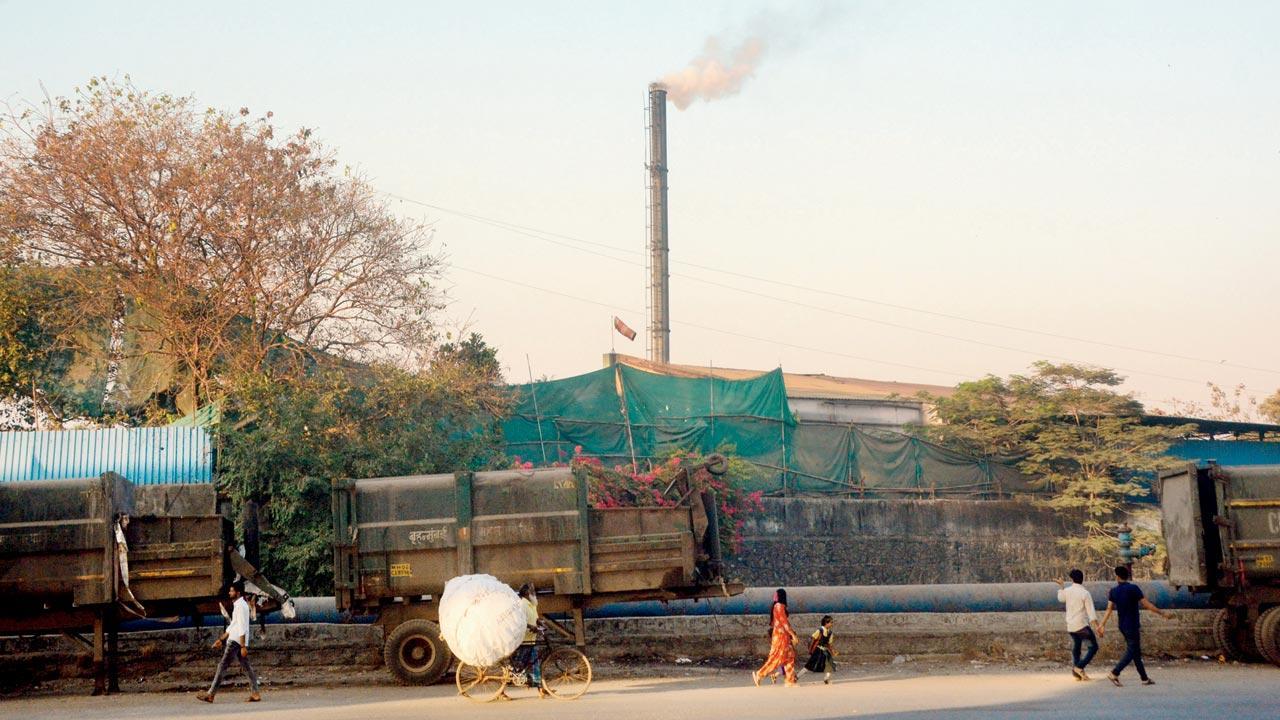Govandi bio-waste treatment plant: Everyone is passing the buck, say residents

The BMC has finally clarified its position on the Govandi bio-medical waste facility issue, stating that all it did was provide land for it. Harshad Kale, deputy municipal commissioner of Zone V, in an email, stated that the Maharashtra Pollution Control Board (MPCB) had invited a tender for setting up the plant.
Kale also instructed the chief engineer of solid waste management to meet with locals as soon as possible and hear their grievances.
The email, which was sent to citizens’ representatives and civic officials on Wednesday, read, “For the past few months, Govandi citizens have been repeatedly seeking appointments to put forth their grievances regarding the bio-medical incinerator plant at Ghatkopar-Mankhurd Link Road, Mankhurd. From the information provided to the undersigned by the M/East ward previously, this office had informed DMC (SWM) to call them for a hearing and process their grievances on merit. Unfortunately, it appears that this hearing has not yet been fructified.”
The bio-medical waste facility at Govandi on December 26, 2022. Fil pic/Satej Shinde
Kale further wrote: “From the report submitted by the assistant commissioner, M East ward, I understand that this plant was set up by MPCB in 2009 for processing bio-medical waste. The role of the BMC was to only provide them with the land. The tender for setting up the bio-medical plant was invited by the MPCB, and the operation and monitoring thereof are also done by the MPCB. The period of operation is up to the year 2029. I further understand that the MPCB regularly monitors the pollution levels generated by this plant. As per the report from the M East ward, no hazardous medical effect on Govandi citizens has been noticed by the health department of the BMC.”
M East ward covers nearly 250 slum pockets and is already a known tuberculosis hotspot. For years, residents have alleged that they have been treated as guinea pigs for various projects, leading to serious health hazards for them.
The ward comprises Govandi, Deonar, Shivaji Nagar and Cheetah Camp, which mainly consists of slums and low-income group houses.
Also read: 2,200 trees to vanish for three sewage treatment plants in Mumbai
The Tata Institute of Social Sciences (TISS), Mumbai conducted a study titled Social Economic Conditions and Vulnerabilities in 2015 to shed light on the socioeconomic circumstances of Mumbai’s M (East) Ward.
“Of major illnesses, more than 50 per cent of respondents reported having what are known as lifestyle illnesses, such as heart disease, diabetes, respiratory conditions, and high blood pressure, followed by tuberculosis (TB),” according to the TISS survey.
Besides this, an RTI response dated September 2022, on the medical records of people infected with TB, respiratory diseases and lung cancer in the M East ward revealed a concerning trend that showed at least 4,500-5,000 people were diagnosed with TB every year and the number of deaths due to the disease from 2013 till May 2022 was 1,877. Most TB cases in the ward were reported by respondents from Shivaji Nagar, Mankhurd and Baiganwadi.
In a legal notice to the state government and MPCB dated November 12, 2022, Faiyaz Alam Shaikh, resident of Shivaji Nagar, Govandi and founder-president of the NGO New Sangam Welfare Society expressed serious concern over public health in the ward.
The Bombay High Court is currently hearing the PIL in connection with the matter.
Shaikh said, “Everyone is just passing the buck. Nobody seems to be intent on helping us resolve the issue by stopping the source of pollution in our vicinity. If you ask the BMC what information it has about health issues in the area, it might not have any recent data. We will be waiting for it to conduct a meeting, as instructed by the DMC, and submit all the documents and reports we have. Following this, we will decide our next course of action.”
250
No. of slum pockets in M East ward

Atul Tiwari is a seasoned journalist at Mumbai Times, specializing in city news, culture, and human-interest stories. With a knack for uncovering compelling narratives, Atul brings Mumbai’s vibrant spirit to life through his writing.





